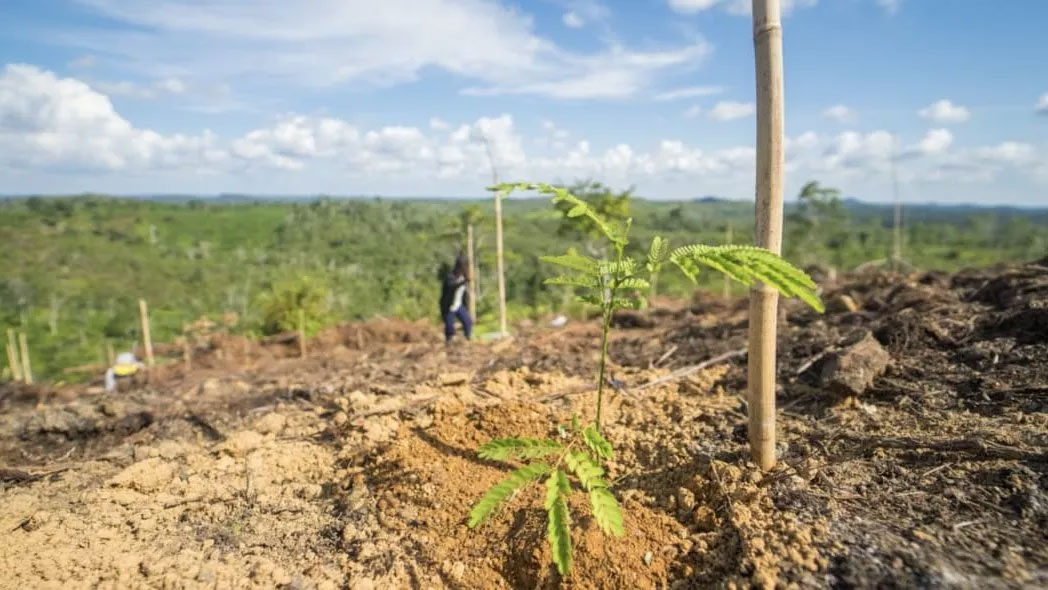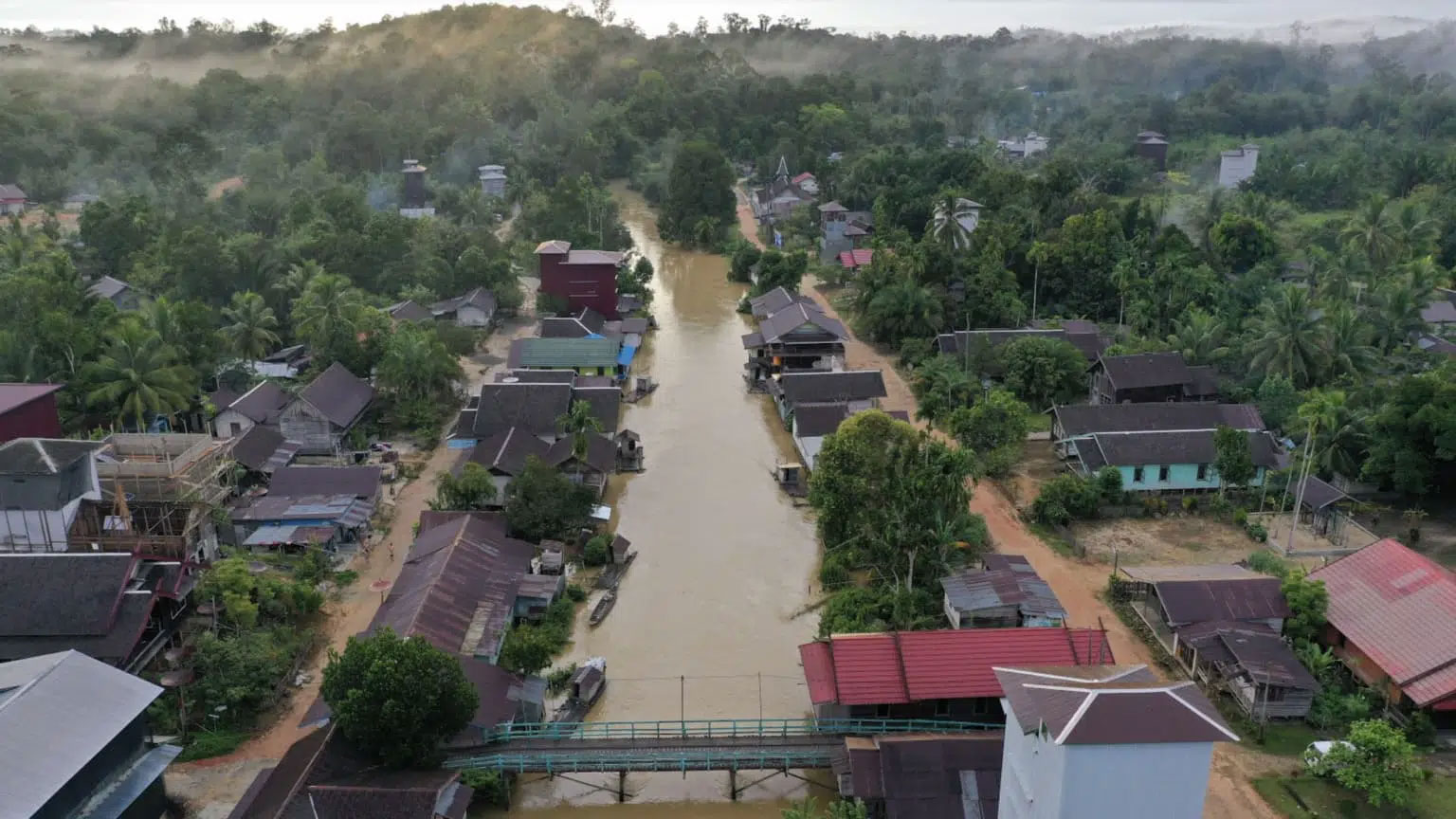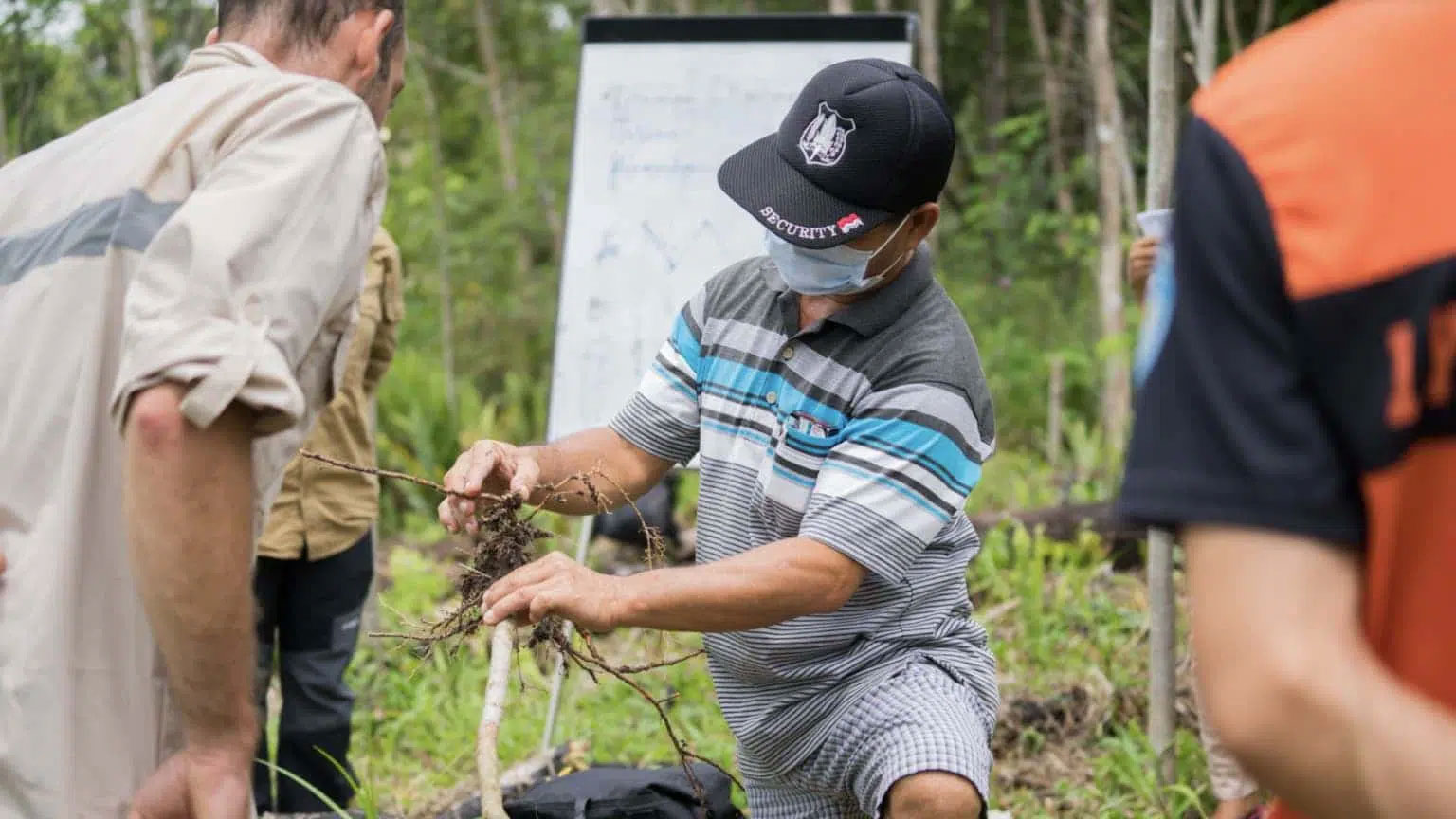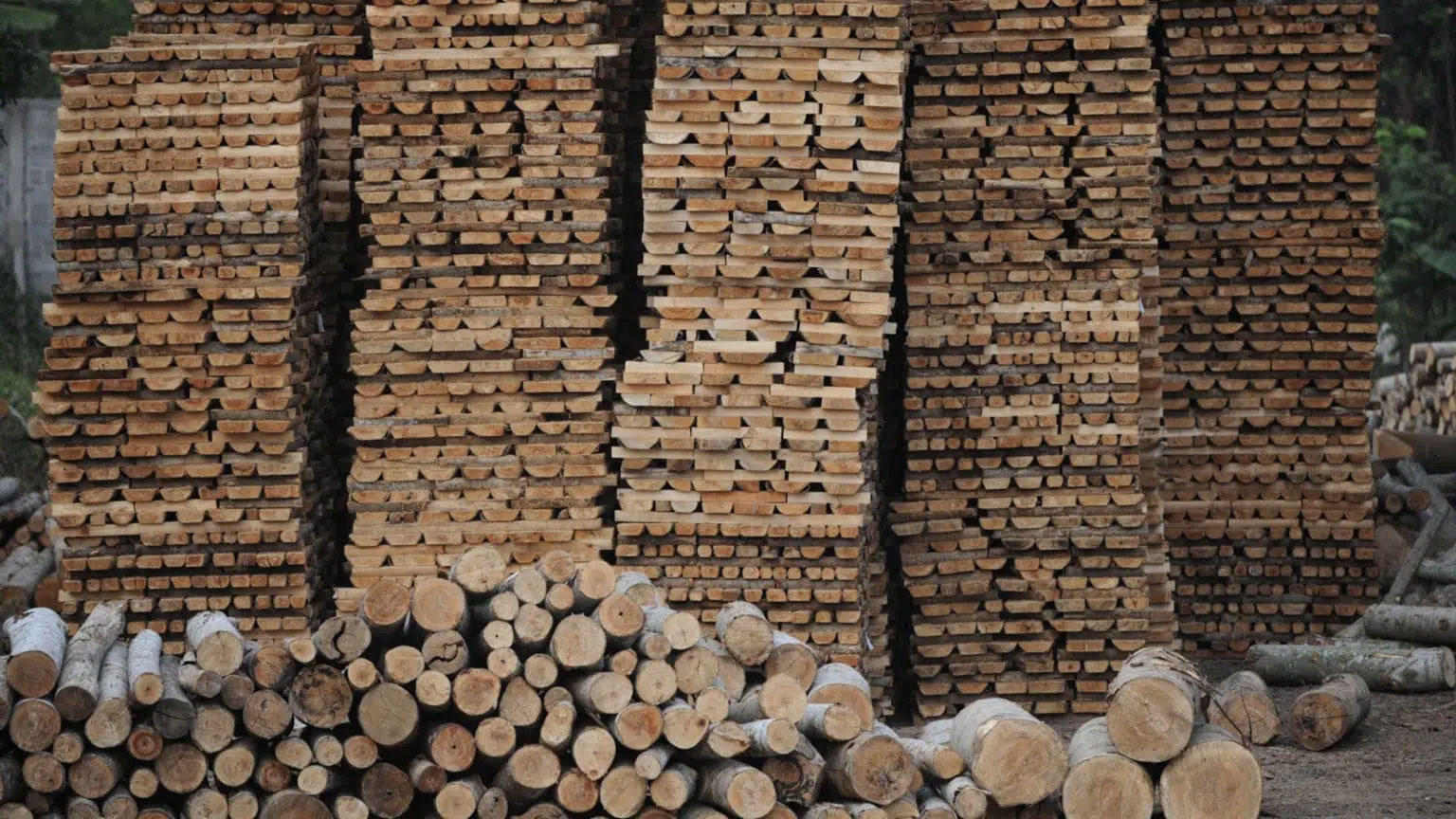Why reforestation is more than just planting trees

Reforestation can help us address two global crises at once. This is what scientific findings show us. On the one hand, it helps to restore degraded habitats and protect existing biodiversity. On the other hand, it is also one of the most effective tools for removing the greenhouse gas carbon dioxide from the atmosphere. But reforestation must not be an „end in itself.“ That is why Fairventures pursues a holistic approach that takes into account not only ecological but also social and economic aspects impacting the local population. In other words, we believe reforestation is more than „just“ planting trees.
Natural forests around the world are in crisis. In Indonesia alone, around 4.4 million hectares of land were lost between 2015 and 2019. That’s an area the size of more than 6 million soccer fields. In Borneo, forests suffer from various activities: coal-mining and the extraction of other raw materials, illegal (and legal!) logging, and clearings for large-scale palm oil plantations. This has a dramatic impact on local biodiversity; plants and animals in the Indonesian forest, including the Bornean orangutan, are threatened with extinction because their habitat is being destroyed or heavily modified as a result of these effects. And the local people are also affected by the developments:
One of our reforestation projects is located about 20 minutes by car from the Indonesian village of Tumbang Malahoi. Far away from the hustle and bustle of the frenetic provincial capital, Palangka Raya, the villagers depend on what nature provides them. Children laugh and giggle while bathing in the river. Unfortunately, their cheerful mood does not reflect the water condition. Fertilizer runoff and the operation of illegal gold mines affect the water quality – throughout the Kahayan River basin, murky and polluted waters are symptomatic of the consequences of a man-made climate change.

In urban areas, where residents have access to clean drinking water around the clock, such pollution is not a major problem. But here, too, severe flooding serves as an illustration of the consequences of our treatment of nature. When trees are cut down near rivers, it damages watersheds and makes downstream areas more vulnerable to flooding. The developments we can observe on the ground in Borneo show us that we humans are both subject and object in this narrative. The effects of our actions are already being clearly felt – more in some regions of the world than in others.
The good news is that we can stop and reverse these developments. While there is no simple solution to the climate crisis, research shows that nature-based solutions are the most effective in combating climate change. A study by ETH Zurich suggests that enough suitable land is available to restore one-third of the world’s forests. That would be more than a trillion additional trees, 250,000 times the quantity spread across the Black Forest in Germany today. However, these efforts must be based on a holistic approach, meaning the local population must be involved in the process and be able to benefit from it – and this is where we return to the Borneo forest.

Who has better knowledge of the forest, who has stronger historical and cultural ties to it than local people? Yet only one-eighth of the world’s forests are in the hands of local communities. At Fairventures, we address this issue by empowering local smallholder farmers so that they can play a key role in reforesting the rainforest. The goal is to give local communities legal rights to the forests and involve them in the entire value chain. After learning sustainable agroforestry practices in our Farmer Field Schools, they are able to plant the seedlings distributed by Fairventures on their own and cultivate their land independently.
But our work does not stop there. In addition to the ecological dimension, Fairventures‘ holistic approach also aims to create a long-term and positive social impact. This includes identifying new, sustainable value chains. Indonesia is one of the largest timber producers in the world. By using our fast-growing trees to meet the high market demand, we can relieve the pressure on existing natural forests and preserve them as homes to a diverse flora and fauna. Furthermore, the economic dimension should not be ignored. By cultivating and selling the light wood and intercrops, smallholder farmers can generate a sustainable income. Fairventures supports them in accessing the right market and in achieving a fair price for their products.

Just as humanity’s problems are complex and multifaceted, so too must their solutions take into account all relevant factors in their entirety. That is why we at Fairventures continue to pursue this holistic approach. Only in this way can reforestation become an appropriate solution to the twin challenges of climate change and biodiversity loss.